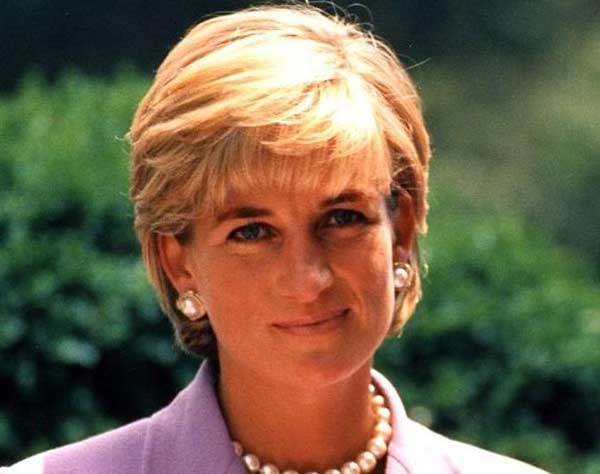By John Mathew Smith / Wikimedia Commons / CC-BY-SA-3.0 / GFDL
1 – Diana, Princess of Wales, Dies in Paris Car Crash
On 31 August 1997, Diana, Princess of Wales died from injuries she sustained in a car crash in the Pont de l’Alma road tunnel in Paris, France.
In the years prior to her death, Diana came to be known worldwide for championing humanitarian causes, such as ending landmines and helping to make the lives of people with AIDS better.
Diana’s partner, Dodi Fayed, and the driver of their Mercedes, Henri Paul, were pronounced dead at the scene. Their bodyguard, Trevor Rees-Jones, was seriously injured but survived the crash.
The media initially blamed the behavior of the paparazzi following the car.
However, a 1999 French judicial investigation found the crash was caused by Henri Paul losing control at high speed, while intoxicated and under the effects of anti-depressant drugs.
A 2008 British inquest returned a verdict of unlawful killing by Paul and the paparazzi pursuing the car. The Royal Family were also strongly criticized in the press for their reaction to Diana’s death.
Diana’s death caused a considerable outpouring of grief from admirers around the world. Her funeral was watched by an estimated 2 billion people.
Elton John released a remake of his song, “Candle in the Wind”, with the proceeds from the song going towards Diana’s charities. It topped music charts around the world and is the best-selling single in Billboard’s history.
2 – Harry Potter & The Philosopher’s Stone is Published, the First of the Best-Selling Series
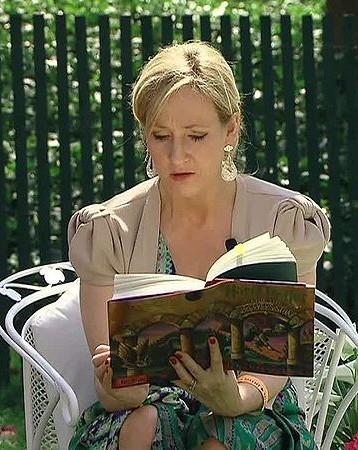
Harry Potter and the Philosopher’s Stone, a novel written by British author J. K. Rowling, was released in June 1997 in the United Kingdom.
Rowling’s debut novel follows Harry Potter, a young wizard who discovers he’s a wizard on his eleventh birthday when he receives a letter of acceptance to Hogwarts School of Witchcraft and Wizardry.
Having been first published in the UK by Bloomsbury in 1997, it was published the following year in the United States by Scholastic Corporation under the title Harry Potter and the Sorcerer’s Stone.
The book won numerous British book awards, other awards in the US, and reached the top of the New York Times list of best-selling fiction in August 1999.
Harry Potter and the Philosopher’s Stone has been translated into over 70 languages and has been made into a feature-length film.
Warner Bros. bought the film rights to the book in 1999 for a reported £1 million.
The film was released to cinemas in the UK and United States on 16 November 2001, becoming the highest-grossing film of 2001.
3 – Mike Tyson Banned from Boxing For Biting Evander Holyfield’s Ear
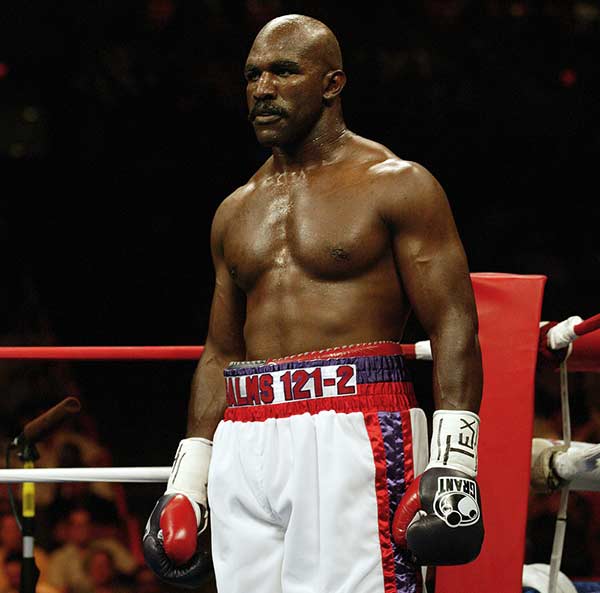
On 28 June 1997, Evander Holyfield vs. Mike Tyson, infamously referred to as “The Bite Fight”, was a boxing match for the WBA Heavyweight Championship, in the MGM Grand in Las Vegas, Nevada.
The fight achieved notoriety after Tyson bit off part of Holyfield’s ear with around 40 seconds of the third round remaining.
Tyson was disqualified from the match and lost his boxing license, though it was reinstated just over a year later.
Tyson and Holyfield had fought seven months earlier in Tyson’s first defense of the WBA championship.
Holyfield had been the underdog but won by knockout in the sixth round.
In October 2009, Tyson apologized to Holyfield on The Oprah Winfrey Show, which Holyfield accepted.
4 – Algerian Civil War Escalates – Many Villages Are Massacred
The Algerian Civil War was an armed conflict between the Algerian Government and various Islamic rebel groups between 1991 and 2002.
The war began following a coup to prevent an Islamist electoral victory, but rebel groups emerged to fight jihad, reaching extreme levels during the mid-90s.
Due to the extreme violence used against civilians, the war came to be known as “The Dirty War”. Islamists targeted journalists, with over 70 being killed, while children were also widely used in the fighting.
In 1997, violence in the war peaked, which saw the GIA (a hard-line Islamic group) begin a series of massacres targeting entire villages. They showed complete disregard for the age and sex of victims.
Beginning with the Thalit massacre in April 1997, Algeria saw 13 villages massacred in which over 50 people were killed.
These massacres continued until the end of 1998, with the Tadjena Massacre in December of that year.
When the Rais and Bentalha massacres, in particular, came to light, there was shock around the world.
Pregnant women were sliced open, children were hacked to pieces, men’s limbs were hacked off, and young women were kidnapped as sex slaves.
Following the election of Abdelaziz Bouteflika as president in 1999, violence declined as many insurgents took advantage of a new amnesty law.
The last hold-outs of the GIA were hunted down, practically disappearing by 2002.
Over the course of the civil war, reports of total fatalities vary from 44,000 up to 200,000 people.
5 – Dolly the Sheep Becomes the World’s First Cloned Mammal
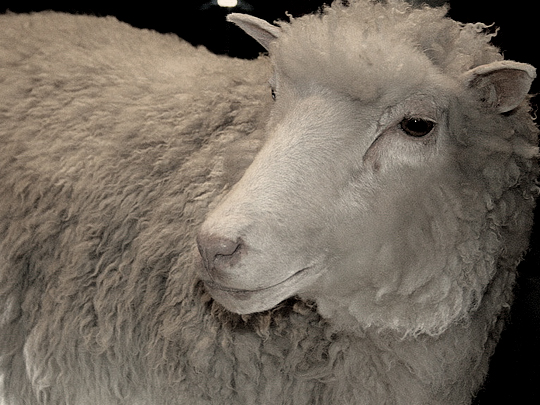
Dolly was a female domestic sheep, and the first mammal cloned from an adult somatic cell, using the process of nuclear transfer.
Born on 5 July 1996, Dolly was the only lamb that survived to adulthood from 277 cloning attempts. However, Dolly’s existence was only announced to the public on 22 February 1997.
Dolly was cloned at the Roslin Institute, part of the University of Edinburgh, Scotland, where she spent her entire life.
On 14 February 2003, Dolly was euthanized having been suffering from progressive lung disease and severe arthritis. The disease was not considered related to her being a clone.
In 2016, there were four identical clones of Dolly were alive and healthy at the age of nine years old.
Scientific articles cite the main legacy of Dolly being the advances in stem cell research.
6 – Betty Shabazz, Widow of Malcolm X, set on fire by her 12-year old grandson
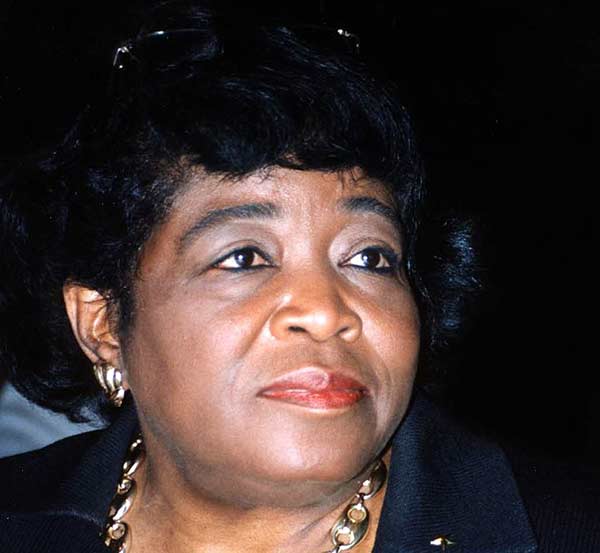
Betty Shabazz, the wife of Malcolm X, was an American educator, and civil rights advocate.
While working as a nurse in New York City, Shabazz met Malcolm X and got married in 1958. She joined the Nation of Islam in 1956 but left with her husband in 1964.
The following year, in 1965, she witnessed Malcolm X’s assassination and was left to raise six daughters as a single mother.
In 1995, Shabazz’s daughter, Qubilah, was arrested for allegedly conspiring to murder Louis Farrakhan, the leader of the Nation of Islam.
After this, Shabazz took in her ten-year-old grandson Malcolm.
On 1 June 1997, Malcolm set fire to Shabazz’s apartment. Shabazz suffered burns over 80 percent of her body.
She remained in intensive care for three weeks, undergoing five skin-replacement operations as doctors tried to save her life.
Shabazz died from her injuries on 23 June 1997. Malcolm Shabazz was sentenced to 18 months in juvenile detention for manslaughter and arson.
